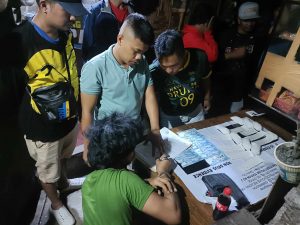The city government continues to find remedial measures to assist businesses struggling with losses amid the coronavirus disease (COVID-19) pandemic.
Mayor Sara Duterte signed three ordinances to help local firms ease their burden from the lengthy lockdown and movement restrictions to slow down the spread of COVID-19..
“We are one family in Davao City – the government and the people. Businesses are like children of the government, we have to understand each other,” said Councilor Danilo Dayanghirang.
Dayanghirang, the chairman of the committee on finance, ways and means, said they lobbied for the passage of three ordinances aimed at easing the burden of local business owners during the pandemic.
First of the remedial measures is Ordinance No. 0243-20 or “An Ordinance extending the deadline of the Second Quarterly installment for payment of Business Tax, and First Quarterly installment for the Real Property Tax and additional levy on real property for the Special Education Fund and Rental Fees from March to June for Public Markets, DCOTT, Sta. Ana Port, Magsaysay Park, and Pasalubong Center to June 30 in view of the threat of COVID-19 in the Philippines.” This was passed by the City Council on March 20.
On April 16, the City Council passed Ordinance No. 0257-20 or “An Ordinance Waiving the Interest, Penalties, and Surcharges incurred for Nonpayment of All Local Taxes, Fees, Charges, and Fines which fall due during the Period of Community Quarantine and Enhanced Community Quarantine.”
The latest of the approved ordinance is Ordinance No. 0278-20 or “An Ordinance providing Relief to Mitigate the Adverse Economic Effects of COVID-19” which was enacted on June 9.
The said ordinance grants relief to any person, firm, or entity conducting business in Davao City through proportional reduction of garbage fee for the calendar year 2021. Garbage fee shall be reduced based on the number of months the establishment was closed, provided that the closure is within the period of CQ (community quarantine) or ECQ (enhanced community quarantine).
Business owners can also deduct from their gross sales or receipts the amount of waived rental fees they granted to their lessees, the monetary value of contributions of establishments utilized as quarantine facilities, and monetary value of donations made to the city government as an aid in response to COVID-19 situation.
Dayanghirang said renters of government-owned enterprises such as the Davao City Overland Transport Terminal, public markets, parks, and the Pasalubong Center will not be charged with the lease of space during the time that they are closed due to the ECQ.
“If you are not operating, you will not pay during the time that you are closed,” Dayanghirang said.
Interventions and Adjustments
Aside from the three ordinances, Dayanghirang also discussed with the private sector to address problems of unpaid loans, interests, and amortizations incurred during the crisis.
Dayanghirang said the business owners also understood the impact of the pandemic on the people and adopted payment arrangements that are convenient for their clients.
For pawnshops, clients are given up to six months to pay their interests and another eight months extension for those who failed to pay the interest before they repossess the item. During COVID-19, no auction is made.
For those that have pending motorcycle loans, they have extended the payment for up to two to three months of amortizations with no penalty or past-due interest.
In the banking sector, the principal amount for term loans, the three months non-payment amount is spread equally to the 12 monthly payments. They are also giving an extension of loan payments depending on the borrower’s capacity to pay.
The lending companies and cooperatives are also suspending payments for three months and not charging interests until December 2020.




